Films with theme "Documentary films about historical events", sorted by revenue

The Secret Land (1948)
, 1h12Origin USA
Genres Documentary
Themes Seafaring films, Transport films, Aviation films, Documentary films about historical events, Documentary films about technology, United States Armed Forces in films
Actors Robert Montgomery, Robert Taylor, Van Heflin
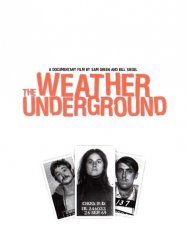
The Weather Underground (2002)
, 1h35Genres Documentary
Themes Documentary films about historical events, Documentary films about politics, Political films
Actors Lili Taylor
Pendant la guerre du Vietnam, une poignée d'étudiants aux idéaux communs se rassemblent pour créer The Weather Underground, une formation armée révolutionnaire qui a pour but de renverser le gouvernement de Nixon alors en place.
 , 1h20
, 1h20Directed by Eugene Jarecki
Origin USA
Genres Documentary
Themes Documentary films about law, Documentary films about war, Documentary films about historical events, Documentaire sur une personnalité, Documentary films about politics, Political films
Actors Brian Cox
Réalisé pour la BBC d'après le document à charge du journaliste anglais Christopher Hitchens Les Crimes de M. Kissinger (publié en France en 2001 chez Saint-Simon), le documentaire d'Eugene Jarecki et Alex Gibney soutient que le lauréat du prix Nobel de la paix doit être tenu pour responsable du maintien des forces américaines au Vietnam après 1968, de l'invasion du Cambodge, du coup d'Etat qui renverse le président chilien Salvador Allende en 1973 et des massacres au Timor-Oriental. Mais pour les deux réalisateurs l'ancien secrétaire d'Etat de Richard Nixon et Gerald Ford n'est pas seulement un politicien cynique prêt à tout pour conquérir puis conserver le pouvoir. Ils affirment que Kissinger est un authentique criminel de guerre. Mais ils se contentent pour cela de clamer la pertinence de l'ouvrage de Christopher Hitchens - le plus souvent avec de longues interventions du journaliste - sans se donner les moyens d'étayer leur thèse.
 , 1h31
, 1h31Directed by Errol Morris
Origin USA
Genres Drama, Documentary
Themes Prison films, Films about racism, Films about religion, Documentary films about racism, Documentary films about law, Documentary films about war, Documentary films about historical events, Documentaire sur une personnalité, Documentary films about religion, Political films, Films about capital punishment, Films about Jews and Judaism, Documentary films about World War II, Documentary films about law enforcement, Négationnisme
Actors Errol Morris
Using film made at American prisons, Leuchter talked about his upbringing where his father was a corrections officer. Through his family associations, young Leuchter claimed he was able to witness an execution performed in an electric chair. Leuchter's impression of the event was that the electric chairs used by American prisons were unsafe and often ineffective. The event led him to design modifications to the device that were adopted by many American states.
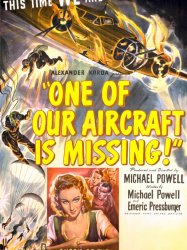 , 1h42
, 1h42Directed by Michael Powell, Emeric Pressburger
Origin United-kingdom
Genres Drama, War, Action
Themes Politique, Transport films, Aviation films, Documentary films about war, Documentary films about historical events, Political films, Documentary films about World War II, Disaster films, Films about aviation accidents or incidents
Actors Godfrey Tearle, Eric Portman, Hugh Williams, Bernard Miles, Hugh Burden, Emrys Jones
"B for Bertie" is an RAF Vickers Wellington bomber whose crew was forced to bail out over the Netherlands near the Zuider Zee after one of their engines was damaged during a nighttime raid on Stuttgart. Five of the six airmen find each other; the sixth goes missing. The first Dutch citizens they encounter, led by English-speaking schoolteacher Else Meertens (Pamela Brown), are suspicious at first as no aircraft is reported to have crashed in the Netherlands (the abandoned bomber actually reaches England before hitting a pylon). After much debate and some questioning, the Dutch agree to help, despite their fear of German reprisals.
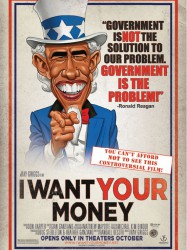
I Want Your Money (2010)
, 1h32Directed by Ray Griggs
Origin USA
Genres Documentary
Themes Documentary films about historical events, Documentary films about politics, Political films
Actors Chris Cox, Bill Farmer, Ray Griggs, Jim Meskimen, Cindy Robinson, Tim Russell

The Rape of Europa (2006)
, 1h57Origin USA
Genres War, Documentary, Historical
Themes Documentary films about the visual arts, Documentary films about war, Documentary films about historical events, Documentary films about politics, Political films, Documentary films about World War II
Actors Joan Allen
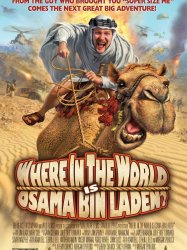
Directed by Morgan Spurlock
Origin USA
Genres Documentary
Themes Films about terrorism, Documentary films about law, Documentary films about war, Documentary films about historical events, Documentary films about politics, Documentary films about terrorism, Political films
Actors Morgan Spurlock
After some comical animations involving Al-Qaeda leader Osama bin Laden, the film shows Spurlock visiting various countries associated with or affected by Bin Laden. The film contains short interviews with many people about Bin Laden and Islamic fundamentalism, and about the US and its war on terror. Supposedly Spurlock searches for Bin Laden, and he even asks people at random in the street where he is. The film is intercut with images of Spurlock's wife in the late stages of her pregnancy. Much of Spurlock's commentary is based on the concerns of a new father.
 , 1h27
, 1h27Genres War, Documentary
Themes Films about racism, Films about religion, Documentary films about racism, Documentary films about law, Documentary films about war, Documentary films about historical events, Documentaire sur une personnalité, Documentary films about politics, Documentary films about religion, Political films, Films about Jews and Judaism, Documentary films about World War II
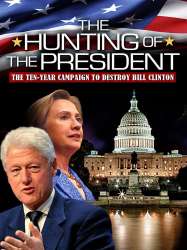
The Hunting of the President (2004)
, 1h30Directed by Nickolas Perry
Origin USA
Genres Documentary
Themes Documentary films about historical events, Documentaire sur une personnalité, Documentary films about politics, Political films
Actors Morgan Freeman, Gennifer Flowers
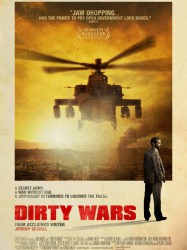
Dirty Wars (2013)
, 1h26Origin USA
Genres Drama, War, Documentary, Crime
Themes Films about terrorism, Documentary films about war, Documentary films about historical events, Political films
Investigative journalist Jeremy Scahill travels to Afghanistan, Yemen, Somalia, and other countries where the United States has taken military action in the War on Terror. In Afghanistan, he investigates the United States military and government cover-up of the deaths of five civilians, including two pregnant women killed by US soldiers from the Joint Special Operations Command. After investigating the attack, Scahill travels to other sites of JSOC intervention, interviewing both proponents and opponents, and the survivors, of such raids, including U.S. Senator Ron Wyden.
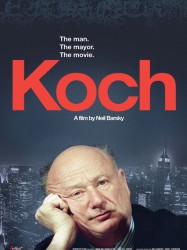
Koch (2013)
, 1h35Origin USA
Genres Documentary, Historical
Themes Documentary films about historical events, Documentaire sur une personnalité, Documentary films about politics, Documentary films about cities, Political films
Actors Ronald Reagan
First-time filmmaker and former Wall Street Journal reporter Neil Barsky’s 2012 documentary film Koch explores the origins, career, and legacy of Edward Irving “Ed” Koch, who served as Mayor of New York City for three consecutive terms from 1978 to 1989. With candid interviews and rare archival footage, the film offers a close look at a man known for being intensely private in spite of his dynamic public persona, and chronicles the tumultuous events which marked his time in office – a fiercely competitive 1977 election, the 1980 transit strike, the burgeoning AIDS epidemic, landmark housing renewal initiatives, and an irreparable municipal corruption scandal. Poignant and often humorous, Koch is a portrait not only of one of New York’s most iconic political figures, but of New York City itself at a time of radical upheaval and transformation.
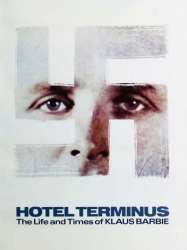 , 4h27
, 4h27Directed by Marcel Ophuls
Genres War, Documentary
Themes Documentary films about law, Documentary films about war, Documentary films about historical events, Documentaire sur une personnalité, Political films, Documentary films about World War II, Histoire de France, L'Occupation allemande en France
Actors Claude Lanzmann, Marcel Ophuls, Jeanne Moreau, Bertrand Tavernier
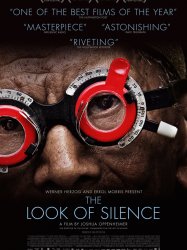
The Look of Silence (2014)
, 1h30Directed by Joshua Oppenheimer, Joshua Oppenheimer
Origin Danemark
Genres Documentary, Historical
Themes Films about racism, Documentary films about racism, Documentary films about law, Documentary films about war, Documentary films about historical events
Actors Joshua Oppenheimer
A middle-aged Indonesian man, whose brother was brutally murdered in the 1965 purge of "communists," confronts the men who carried out the killings. Out of concern for his safety, the man is not fully identified in the film and is credited only as "anonymous," as are many of the film's crew positions. Some shots consist of the man watching (what seems to be) extra footage from The Act of Killing, which includes video of the men who killed his brother. He visits some of the killers and their collaborators—including his uncle—under the pretense of an eye exam. Although none of the killers express any remorse, the daughter of one of them is clearly shaken when she hears, apparently for the first time, the details of the killings.

Standard Operating Procedure (2008)
, 1h56Directed by Errol Morris
Origin USA
Genres War, Documentary
Themes Documentary films about war, Documentary films about historical events, Political films
Actors Josh Feinman, Alim Kouliev
An examination of the intended consequences of the Iraqi war with a focus on events at Abu Ghraib prison which began to appear in global media in 2004. The prison quickly became notorious for the photos of the abuse of terror suspects, their children, and innocent civilians by military men and women.
 Connection
Connection